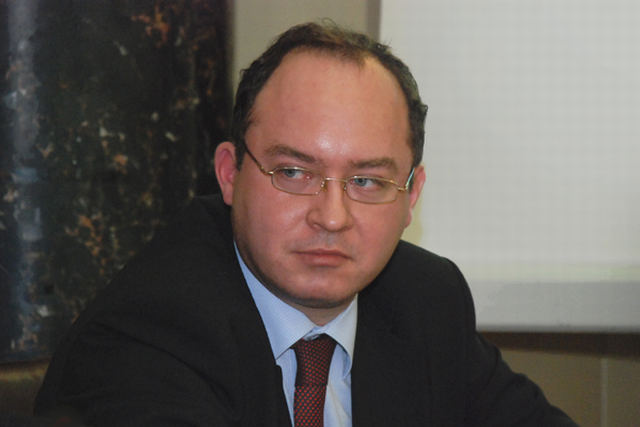Foreign Policy Priorities
An overview of Romania's foreign policy priorities in 2015.

Corina Cristea, 23.01.2015, 12:32
Unlike its agitated domestic politics, Romania’s foreign policy relies on a number of invariable directions. Set during the Christian-Democratic President Emil Constantinescu’s term in office, between 1996 and 2000, Romania’s firm option for the West has been kept in place by all his successors. The country became a NATO member in 2004, under the leftist, Social Democratic president Ion Iliescu, and a EU member in 2007, under the right-of-centre president Traian Basescu. After taking office one month ago, the Liberal Klaus Iohannis made his first official visit as President of Romania to Brussels, where he had meetings both with the presidents of the European Commission, Jean-Claude Juncker and European Council, Donald Tusk, and with the NATO Secretary General Jens Stoltenberg. Iohannis confirmed that the country’s foreign policy priorities during his term in office would remain unchanged:
“Romania has been an EU Member State for 8 years now. Our institutions have been substantially strengthened, and our contribution to the European project must be equally important. A priority of my term in office will be to further the European integration process. We will discuss the steps that Romania must take in view of deepening its involvement and in order to act with more determination as a NATO member.”
A career diplomat appointed as Foreign Minister in November, within a mostly Social Democratic cabinet cohabitating with a Liberal President, Bogdan Aurescu in turn confirmed the principle of continuity:
“Romania’s foreign policy has a number of constant elements, whose objectives have been defined by national consensus, and I don’t think we can talk about changing its guidelines. These are the EU membership, the NATO membership—and last year we marked 10 years since our country joined the Alliance—the Strategic Partnership with the USA, the Strategic Partnership for EU integration with the Republic of Moldova. All these are the constant elements of Romania’s foreign policy, and I am glad to see a consensus among all political parties as regards these elements.”
In an interview to Radio Romania shortly after the attacks in Paris, Foreign Minister Aurescu stressed Romania’s position within the international coalition fighting terrorism, a coalition that Bucharest joined immediately after the terror attacks of September 11, 2001 in the US:
“The extraordinary solidarity shown by the European countries and other states, and by the Romanian society at large, has proven how important it is for us to do away with the scourge of international terror. We have firmly and promptly condemned this tragic event because in Romania’s view, nothing can justify a terrorist act, particularly when its target is the freedom of speech. In my opinion, one of the consequences of this situation is the need to strengthen international cooperation in fighting terrorism.”
Romania, however, refuses the idea that increased security could include reintroducing restrictions on freedom of movement for citizens on EU territory. Here is what Bogdan Aurescu had to say:
“Once again, freedom of movement is an earned right, it is a fundamental freedom, and we have to be mindful of this earned right. At the same time, Romania is ready to take part in this effort, even though it is not yet a Schengen country, because, in fact, Romania acts like a Schengen state.”
As an eastern outpost of EU and NATO, profoundly concerned with the fate of the Republic of Moldova, Bucharest has been growing more and more alarmed with Russian aggression in Ukraine. Here is the Romanian Foreign Minister talking about this:
“Last year was marked by an important international event, at least as far as Romania is concerned, namely the crisis in Ukraine, including the illegal annexation of Crimea, in violation of the fundamental international law principles and standards, followed by a destabilization of the country’s east, which is still developing as we speak. Obviously, we reiterated the support we have shown for our neighbouring state’s territorial integrity and sovereignty, Romania’s most important neighbour, both in terms of size and from a frontier point of view, and, very importantly, from the point of view of the Romanian community in Ukraine, which is around half a million.”
In addition to supporting the pro-Western regime in Kiev, slapping economic sanctions on Moscow is one option the West could use to leverage the crisis, Bogdan Aurescu has said:
“As for the sanctions, Romania has been behind it from the very beginning, because we believe these sanctions are starting to work. There are two sets of sanctions, those for the occupation of Crimea and those related to the security situation in eastern Ukraine.”






























